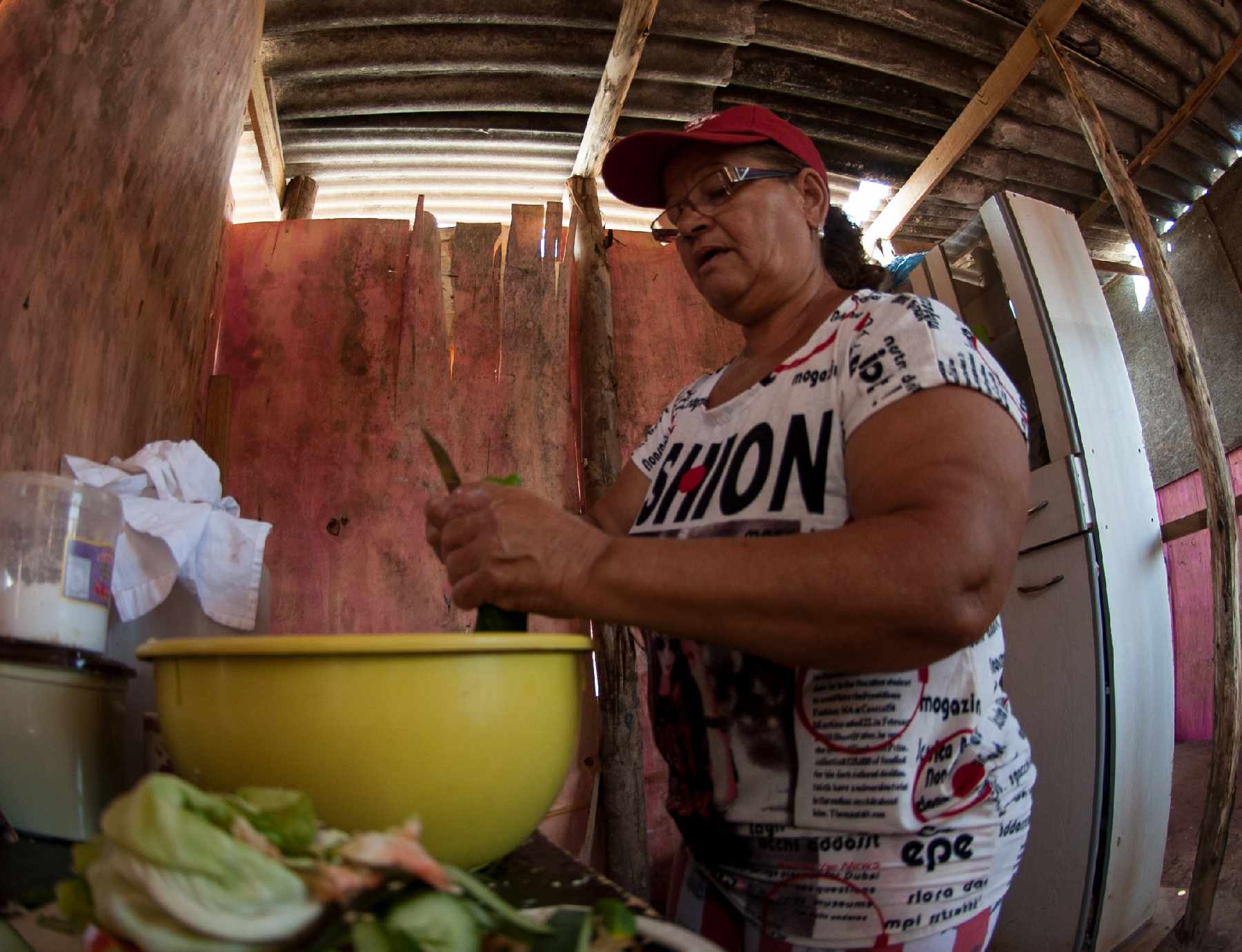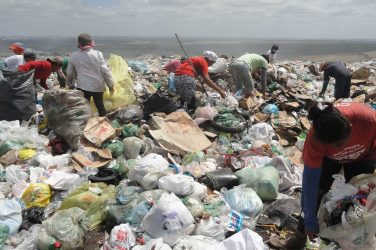On the fringes of São Paulo, hundreds of makeshift dwellings fashioned from discarded plywood, plastic tarps and rusted sheets of corrugated iron occupy a hillside protest camp for squatters demanding affordable housing.
Occupations like this aren’t uncommon in Brazil as millions of landless families struggle with high housing costs and unemployment amid the worst recession since the 1930s.
But the occupation of Nova Palestina by several thousand squatters is different from other housing protests, according to academics and government officials, as it sits above the watershed of a mega-city just emerging from an epic drought.
Untreated sewage from hillside shacks flow down the slopes when it rains, in some cases heading towards one of São Paulo’s main reservoirs, which provides water to city residents.
The protest camp has become a crucible of a conflict between the demands of poor families who want a place to call home and the need to protect urban watersheds, said Jutta Gutberlet, a professor of geography at the University of Victoria in Canada.
“It is short-sighted not to protect these watersheds, despite the pressure to house these people,” Gutberlet told the Thomson Reuters Foundation.
Sanitation Problems
At the encampment, groups of young shirtless men carry power tools and building supplies to fashion tiny new houses on spare plots of land that slope down towards São Paulo’s Guarapiranga reservoir.
“I like it here, people take care of each other,” said Quiteria Alves, an unemployed mother of seven, as she showed off her small wooden home.
“I lost my job and rent became too much for me, that’s why I came here,” she said. “The problem is sanitation.”
Local officials are trying to find a balance between protecting the housing rights of people with nowhere else to go and safeguarding the water supply of 4.7 million people who depend on the reservoir below the camp.
“This occupation has advanced into yet another area that was forested and could be used to protect the watershed,” said Gutberlet, who has studied sanitation issues across São Paulo, a city of 20 million people – the biggest in South America.
“Sewage from the settlement usually runs into the watershed.”
Scarce Resource
More established informal communities – or favelas – of brick homes rather than scrap material sit on other hillsides surrounding the reservoir.
They developed over the past two decades as migrants from other parts of Brazil moved into São Paulo. At first the government didn’t give them much attention as they sat in peripheral areas of the city, squatters said.
But when the worst drought in 80 years hit in 2014, depriving many residents of water for 12 hours a day and prompting a slowdown in factory activity, officials took notice.
“Water has become a scarce resource,” Gutberlet said.
Protest leaders largely dismiss the impact their camp is having on the city’s water supplies.
“The lack of sanitation from the government is polluting the water, not our occupation,” said Jussara Basso, a protest coordinator with the Homeless Workers Movement.
Unlike other Brazilian informal settlements built with bricks or other sturdy materials, the Nova Palestina protest camp is built with plastic sheeting and scrap wood, as residents are using the camp to pressure the government to build affordable housing.
“People live here because they have nowhere else to go,” she said, as she sheltered from the rain under an iron roof.
Nearby, women cooked beans and soup in a communal kitchen as children chased each other on patches of dirt and teenagers in tank tops huddled away from the rain watching videos on smartphones.
More than 3,400 families live in the encampment, Basso said.
The Nova Palestina encampment has been in existence more than three years, roughly as old as Brazil’s recession, which has thrown more than 2 million people out of work.
Residents said they don’t want to live in makeshift structures with no plumbing or public services indefinitely.
The point of the protest is to push the government to build formal housing and regularize informal settlements like this one, Basso said.
Environmental Damage
Officials in São Paulo say they are looking for alternatives to the informal encampment.
“Of course occupations in watershed areas damage the environment,” said Emerson Figueiredo, a spokesman for the City of São Paulo.
The government wants to regularize informal housing in the area, building new apartments and a park for the squatters, Figueiredo said.
But some of the occupied land is private property and the government can’t step in until the owners and the protesters reach an agreement, he said. Protesters say they want the government to buy the land in order to build housing.
In the meantime, the government is trying to support protect the reservoir and to control occupations, Figueiredo said.
Officials are working to expand the collection and treatment of sewage in low-income areas and shanty towns across São Paulo, he added.
Brazil faces an affordable housing shortfall of an estimated 7 million units, according to data from the U.S.-based Massachusetts Institute of Technology (MIT).
Officials say they are trying to address the problem despite a budget crunch due to declining tax revenues.
Through its housing program known as “Minha Casa, Minha Vida”, Brazil’s government has built more than 2.6 million low-cost homes since 2009.
And despite recent cuts to the building program, protesters at Nova Palestina hope their plywood shacks will eventually be replaced by concrete apartments with proper plumbing.
“I will keep staying here until they build something for us,” said Alves.
This article was produced by the Thomson Reuters Foundation. Visit them at www.thisisplace.org














